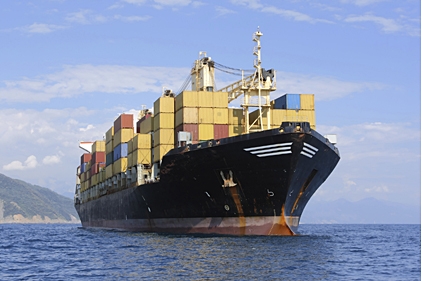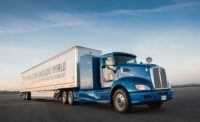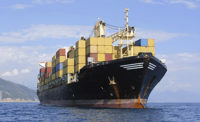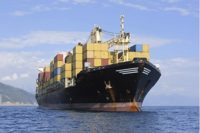Refrigerated & Frozen Foods talks exclusively with Barb Maynard, president of Maynard Consulting Services, Rolling Hills Estates, Calif., and national communications director for the Justice for Port Drivers, to discuss why the truck drivers are on strike at the ports of Los Angeles and Long Beach and how this impacts the cold food industry.
Refrigerated & Frozen Foods: Recently, drivers returned to work after a long-running labor dispute with the Port of Los Angeles and the Port of Long Beach. What was the dispute about?
Barb Maynard: In short, port truck drivers working at the ports of Los Angeles and Long Beach went on strike early July 7 for the fourth time in 11 months to protest the unfair labor practices of their employers. As drivers have fought to end the illegal misclassification schemes that dominate the drayage industry and secure a fair day’s pay for a hard day’s work, they have encountered fierce and unlawful resistance for activity that is protected by state and federal laws.
As you may know, the short haul truck drivers who haul cargo for Wal-mart, Target, Skechers Shoes, etc. from U.S. seaports to inland distribution centers and warehouses are some of the most mistreated and misclassified workers in America today. Thirty years after trucking de-regulation pushed drivers from good middle class union jobs into a workforce of “independent contractors” with none of the bedrock labor protections afforded employees, drivers across the United States are fighting back and demanding justice.
The central issue of that fight is misclassification as independents and the wage theft that accompanies it, a scheme that agency after agency—the National Labor Relations Board (NLRB), the California Department of Labor and the California Employment Development Department—has deemed illegal given the reality of the drivers’ work experience (they work exclusively for one company and that company controls their work). In California alone, more than 500 drivers have filed wage and hour claims, with total damages estimated over $40 million, and the damages continue to amass every day as the wage theft continues. There are also at least eight private class action lawsuits, one of which was recently granted class status.
The industry is growing increasingly desperate; doing everything it can to keep the status quo. Company owners are firing, intimidating and countersuing drivers. The industry is countersuing state agencies, filing appeals on trial court decisions and filing to compel arbitration to stay government proceedings.
Drivers aren’t backing down. They are stepping out of the shadows, organizing and fighting back. Just last week, Region 21 of the NLRB issued a complaint against one company for 50 labor law violations, including firing two workers, death threats and more.
Over the past 10 months, port drivers at the ports of Los Angeles and Long Beach, where more than 40% of our nation’s imports arrive on our shores, have engaged in three legal Unfair Labor Practice strikes against major port trucking companies who haul for clients such as Wal-mart, Target, Skechers Shoes and Costco.
Refrigerated & Frozen Foods: What is the resolution?
Maynard: This issue is not resolved. Thanks to Mayor Eric Garcetti’s intervention, the companies have agreed to a cooling off period during which they will cease all retaliatory activity. However, they have reached settlements with the NLRB in the past and also agreed to cease unfair labor practices and turned around and done the same thing again. The drivers remain ready to resume picketing if that happens again.
Refrigerated & Frozen Foods: What was the International Longshore and Warehouse Union’s involvement with the dispute?
Maynard: As was widely reported, ILWU members did walk off the job at one point because of the drivers’ picketing, but were required to return to work under the terms of their contract extension.
Refrigerated & Frozen Foods: What was the Pacific Maritime Association’s involvement with the dispute?
Maynard:I am not aware of any involvement. However, a number of the marine terminals did tell the truck companies to stay away from those terminals during the strike, presumably because of the long truck lines caused by the picketing.
Refrigerated & Frozen Foods: What is your and your company’s role in such disputes?
Maynard: I am serving as the national communications director for the Justice for Port Drivers, a project of the Teamsters and Change to Win Strategic Organizing Center. I am effectively staff to the campaign, and I am helping the drivers get their voices heard.
Refrigerated & Frozen Foods: How can such disputes be prevented in the future?
Maynard: These labor disputes are the direct result of companies violating federal labor law. The drivers have made it clear that they will continue to strike each time their employers break the law.
Refrigerated & Frozen Foods: What advice do you have for ports, truckers, shippers, processors, etc.?
Maynard: For the shippers and processors, demand that your drayage company obey all local, state and federal laws.
For the ports, exercise your authority as landlord to demand that only companies that obey local, state and federal laws do business on port property and/or participate in port-sponsored or taxpayer-supported initiatives.
For the truckers, demand that the ports work for everyone, not just the shippers, company executives and longshore workers.



